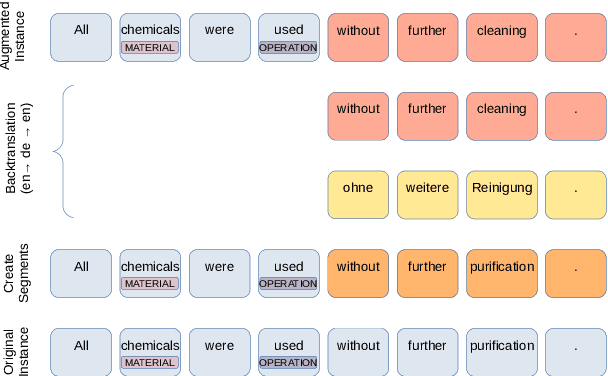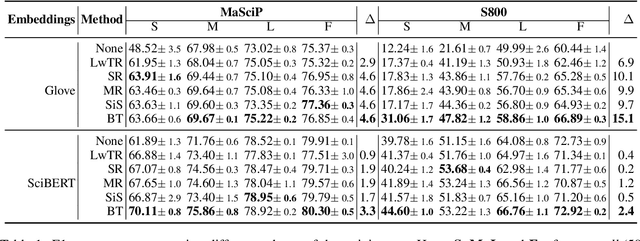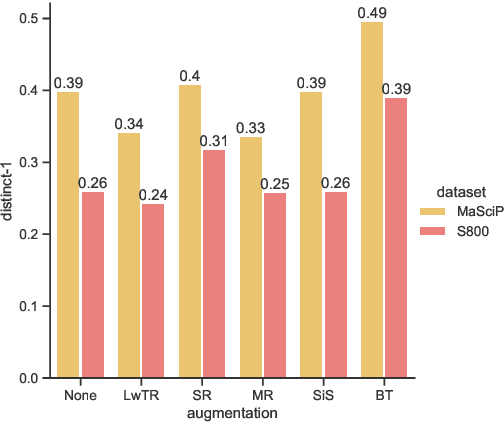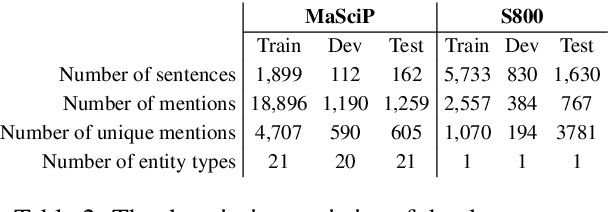Data Augmentation for Low-Resource Named Entity Recognition Using Backtranslation
Paper and Code
Aug 26, 2021



The state of art natural language processing systems relies on sizable training datasets to achieve high performance. Lack of such datasets in the specialized low resource domains lead to suboptimal performance. In this work, we adapt backtranslation to generate high quality and linguistically diverse synthetic data for low-resource named entity recognition. We perform experiments on two datasets from the materials science (MaSciP) and biomedical domains (S800). The empirical results demonstrate the effectiveness of our proposed augmentation strategy, particularly in the low-resource scenario.
 Add to Chrome
Add to Chrome Add to Firefox
Add to Firefox Add to Edge
Add to Edge